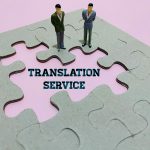As we all continue to grapple with the realities of climate change and environmental degradation, it’s becoming clearer every day that every sector of our economy needs to do its part to address these urgent issues. One area where there’s a great deal of potential for positive change is in the real estate market. More and more property buyers are seeking out homes and commercial spaces that are not only comfortable and attractive but also eco-friendly and energy efficient. Green building is no longer a niche market. It’s quickly becoming the standard for the 21st century.
This presents a substantial opportunity for those in the real estate industry. By establishing a brand that emphasizes sustainability, you can attract these environmentally conscious buyers and build a reputation as a forward-thinking, responsible company. But how exactly can you do this? Let’s delve into some key strategies.
A lire aussi : What Are the Financial and Social Benefits of Developing Co-Op Housing Projects?
Emphasizing Green Properties in Marketing
One of the most effective ways to highlight your commitment to sustainable real estate is through your marketing efforts. Today’s consumers are savvy, and they’re looking for brands that align with their values. As such, showcasing the eco-friendly features of your properties can be a powerful way to resonate with these individuals.
Start by highlighting the green features and sustainable materials used in your properties. This could include things like solar panels, energy-efficient appliances, or sustainably sourced building materials. Make sure to clearly communicate the benefits of these features, such as lower energy bills or a smaller carbon footprint.
A lire en complément : What Are the Risks and Rewards of Investing in Distressed Real Estate Assets?
But it’s not enough to just talk about these features. You need to show them in action. Consider creating video tours of your properties that highlight these elements, or using before-and-after images to show the impact of energy-efficient renovations. By making these eco-friendly features a key part of your marketing narrative, you can position yourself as a leader in the green real estate market.
Offering Energy-Efficient Homes
Offering energy-efficient homes is another crucial strategy for establishing an eco-conscious real estate brand. Energy efficiency is a top concern for many property buyers, and by offering homes that meet this need, you can set yourself apart from the competition.
Energy-efficient homes are designed to reduce energy consumption, which not only lowers utility bills but also cuts down on carbon emissions. These homes often include features like high-efficiency appliances and HVAC systems, LED lighting, and insulation that exceeds building code requirements.
In addition to these features, you could also consider incorporating renewable energy systems into your properties, such as solar panels or geothermal heating and cooling systems. While these systems can be more expensive upfront, they can provide significant savings over time and are a powerful selling point for many environmentally conscious buyers.
Building with Sustainable Materials
The materials you choose to build your properties with play a significant role in their overall environmental impact. By choosing sustainable materials, you can reduce this impact and further establish your brand’s commitment to sustainability.
Sustainable materials are those that are either renewable or have a low environmental impact. This can include things like reclaimed wood, recycled metal, or sustainable bamboo. In addition to being better for the planet, these materials can also add unique aesthetic appeal to your properties, making them more attractive to buyers.
Furthermore, you should consider the lifetime environmental impact of the materials you use. For example, while a material might be cheap and plentiful, it could require a great deal of energy to manufacture and transport, or it could contribute to pollution during its lifecycle. By choosing materials with lower overall environmental impacts, you can build properties that are truly eco-friendly.
Implementing Eco-Friendly Practices into Your Business Operations
Finally, establishing an eco-conscious real estate brand isn’t just about the properties you sell. It’s also about how you conduct your business. By implementing eco-friendly practices into your day-to-day operations, you can further demonstrate your commitment to sustainability.
This could involve everything from reducing paper usage in your office to choosing green hosting providers for your website. Additionally, consider how you can reduce the carbon footprint of your business. This could include reducing travel for meetings, investing in energy-efficient office equipment, or even installing solar panels on your office building.
Remember, demonstrating a commitment to sustainability is about more than just a marketing strategy. It’s about making real changes to your business practices and being proactive in addressing environmental challenges.
Leveraging Green Certifications and Partnerships
One way to validate your commitment to sustainability is through green certifications and partnerships. These can provide third-party validation of your eco-friendly practices and can be a powerful marketing tool.
There are numerous green certifications available for both properties and businesses. For properties, these could include certifications like LEED or Energy Star. For businesses, you could consider certifications like Green Business Certification or the ISO 14001 environmental management standard.
In addition to certifications, consider partnering with local environmental organizations or initiatives. This can provide further proof of your commitment to sustainability and can also provide opportunities for co-marketing or community engagement.
Constructing a brand that stands for eco-conscious living is more than a trend – it’s a long-term commitment. But with strategic marketing, energy-efficient homes, sustainable materials, eco-friendly business practices, and green partnerships, you can build a real estate brand that not only appeals to today’s environmentally conscious buyers but also contributes to a more sustainable future.
Adopting Smart Technology in Green Building
As a future-oriented real estate brand emphasizing eco-conscious living, leveraging smart technology in green building is a proactive step towards achieving this goal. Smart technology, which includes automated systems and devices aiming to improve energy efficiency and reduce environmental impact, is reshaping the real estate landscape, especially in the context of sustainable living.
Home automation systems, for instance, help homeowners manage energy consumption more effectively. The use of smart thermostats and energy-efficient appliances controlled via mobile apps ensures optimal energy usage and minimizes waste. Furthermore, smart lighting systems that adjust depending on the availability of natural light also contribute significantly to energy saving.
Integrating renewable energy sources, such as solar panels, with smart grid technology, allows for more efficient energy management. This not only reduces reliance on non-renewable energy sources, thus lowering the carbon footprint, but also offers the potential for homes to feed energy back into the power grid during periods of low usage.
Water-saving technologies, such as smart irrigation systems and low-flow showerheads and toilets, are also critical elements in an eco-friendly home. By adopting these technologies in your properties, you underline your commitment to sustainability and carry forward the ethos of your brand.
In your marketing efforts, highlighting these smart technologies and their benefits can further enhance your brand’s appeal to the environmentally conscious buyer. Showcasing the long-term cost savings and the active contribution to reducing environmental impact can be compelling selling points.
Enhancing Indoor Air Quality for Sustainable Living
A less explored yet crucial aspect of sustainable real estate is the indoor air quality. Emphasizing this in your real estate brand can differentiate your offerings in the eco-friendly homes market. Enhanced indoor air quality not only conveys a healthier living experience but also reinforces your brand’s commitment to overall sustainable living.
Poor indoor air quality, often due to inadequate ventilation, the use of harmful construction materials, and indoor pollutants, is a common issue in many properties. Addressing this can play a significant role in establishing your reputation as a green real estate brand. In this regard, installing energy recovery ventilators (ERVs) can ensure ample circulation of fresh air while minimizing energy loss.
Use of low or zero volatile organic compound (VOC) paints and finishes, natural fiber carpets, and furniture made from sustainably sourced materials can further improve indoor air quality. Furthermore, incorporating houseplants known for their air-purifying qualities can be a unique way to enhance indoor air quality while adding to the aesthetic appeal of the property.
Showcasing these features in your properties and clearly communicating their benefits can underline your commitment to a healthier, more comfortable living environment for your buyers.
Conclusion
Establishing a real estate brand that emphasizes eco-conscious living is a multi-faceted approach involving strategic marketing, offering energy-efficient homes, adopting sustainable practices, and leveraging green partnerships. However, the integration of smart technology in green building and the enhancement of indoor air quality are equally crucial in demonstrating your commitment to sustainability.
Remember, in today’s environmentally conscious market, buyers are not only interested in the aesthetic appeal and comfort of their potential homes, but they also value the property’s overall environmental impact and the lifestyle it promotes. As a forward-thinking real estate brand, aligning your brand identity and operations with these values can position you as a leader in the sustainable real estate market, paving the way for a more sustainable future.






